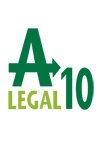Best Lawyers in Bree
Share your needs with us, get contacted by law firms.
Free. Takes 2 min.
List of the best lawyers in Bree, Belgium
About hiring a lawyer in Bree, Belgium
Hiring a lawyer in Bree follows the same basic steps as in other Belgian towns, with a few local practicalities to keep in mind. First identify the legal issue and the type of lawyer you need - for example family law, employment, property, or criminal defence. Contact one or more lawyers to request an initial discussion or consultation. During that meeting you should discuss scope, likely steps, timing and fees. If you decide to hire the lawyer you will normally sign a mandate agreement that sets out services and payment terms. The lawyer will handle filings, communications with the other side and court appearances as needed. Most lawyers in Bree practise in Dutch, so check language availability upfront. If you qualify for legal aid, you can apply for assistance through the Belgian legal-aid system.
Why You May Need a Lawyer
People in Bree commonly need lawyers for a range of situations. Typical reasons include:
- Family matters such as divorce, child custody, maintenance and prenuptial agreements.
- Housing disputes between tenants and landlords, eviction procedures and lease interpretation.
- Employment disputes including wrongful dismissal, unpaid wages and workplace conflicts.
- Traffic accidents and personal injury claims, including insurance negotiations.
- Criminal charges or police investigations where representation is needed for hearings and trials.
- Consumer disputes and contract problems with businesses or service providers.
- Administrative matters such as permits, licensing or disputes with municipal decisions.
- Estate and inheritance issues including wills, probate and succession planning.
Local Laws Overview
Belgium uses a civil law system. Key points relevant to Bree residents include:
- Language and region - Bree is in the Flemish Region in the province of Limburg. Dutch is the official working language for local courts and most legal services in the area. If you prefer another language, confirm availability with the lawyer.
- Court structure - Civil and criminal matters are handled at different levels - police courts, tribunals of first instance, labour tribunals, enterprise courts and higher appeal courts. The appropriate court depends on the subject matter and the amount in dispute.
- Procedural rules - Belgian procedure is generally written and document-driven. Deadlines and formal requirements matter - missing a deadline can affect your case. Your lawyer will explain applicable procedural steps.
- Legal aid - People with limited means can apply for legal aid - a partial or full waiver of lawyer fees - through the national legal-aid system. Eligibility depends on income, assets and the case type.
- Alternative dispute resolution - Mediation and negotiation are increasingly used to resolve disputes without full court proceedings. For some family matters, courts encourage or require attempts at amicable settlement.
Frequently Asked Questions
How do I find a lawyer in Bree?
Start by asking trusted friends or family for recommendations, or contact the local bar office to ask for a referral to lawyers who practise in the area of law you need. Many lawyers maintain small local practices, and some larger firms serve the wider Limburg region. Request an initial consultation to assess fit and competence.
What will a first meeting cost?
Some lawyers offer a short initial consultation for a modest fixed fee or free intake call, while others charge a standard hourly rate. Ask about consultation fees when you book. The lawyer should explain likely overall costs and fee structure - hourly, fixed fee or success-fee components - before you sign a mandate.
Can I get free or reduced-cost legal help?
Yes. If your income and assets fall below legal-aid thresholds you may qualify for full or partial legal aid. The lawyer or your local bar can help you apply. For general information on legal aid see the Belgian federal justice website at
What should I bring to my first meeting?
Bring identification, copies of all relevant documents (contracts, letters, court papers, police reports, payslips, photographs), a timeline of events and a short list of questions. Having documents organized will help the lawyer give clearer advice and estimate likely next steps.
How long will my case take?
Duration depends on the type of matter. Simple negotiations or administrative appeals can take weeks to months. Court proceedings often take many months and sometimes years if appeals are involved. Your lawyer should outline an estimated timeline at the outset and update you if circumstances change.
Do lawyers in Bree speak English or French?
Dutch is the primary language in Bree. Many lawyers also speak French and English, but this varies. Confirm language capabilities when you contact a lawyer if you need service in another language. If necessary, you can request an interpreter for official proceedings, but confirm arrangements and costs in advance.
How are lawyer fees calculated?
Fees may be hourly, fixed for a specific task, or a combination. In some civil matters lawyers may propose a conditional fee arrangement, but such agreements must comply with Belgian ethics rules. Disbursements - court fees, process servers, expert reports - are typically billed separately. Your lawyer must provide a clear fee agreement and periodic invoices.
What if I am dissatisfied with my lawyer?
If you have concerns first try to resolve them directly with the lawyer. If that does not work you can raise a formal complaint with the local bar association that regulates lawyer conduct. The bar can explain complaint procedures and disciplinary or mediation options.
Can I change lawyers during a case?
Yes, you may change lawyers, but you should inform your current lawyer in writing and settle outstanding bills. There may be practical and timing consequences, such as transfer of file and potential delays. Your new lawyer will handle the formalities to take over the mandate.
How do I know if my case should go to court or be settled?
Your lawyer should explain strengths and weaknesses of your case, likely costs and timelines for litigation versus settlement. Many disputes are resolved more quickly and cheaply through negotiation or mediation, but if key legal principles or significant rights are at stake, litigation may be necessary. Ask your lawyer for an honest assessment and alternatives.
Additional Resources
Official governmental resources that can help you include:
- Belgian Federal Public Service Justice - information on courts, procedures and legal aid:
- The Belgian government portal - general information about public services, permits and administrative procedures:
- Your local municipality office in Bree - for administrative questions, permits and local procedures. Contact details are available via the municipal website or town hall.
If you need assistance finding a lawyer or understanding bar procedures, contact the local bar office in the Limburg region for guidance. Your municipal social services or public legal information centres can also point you to legal support and mediation services.
Next Steps
1. Clarify your issue - write a brief summary and gather key documents and dates.
2. Check eligibility for legal aid - consult the federal justice site and be ready to provide income information if you apply.
3. Contact one or more lawyers - describe your issue and ask about experience, likely steps, estimated costs and language capability.
4. Compare fee proposals and mandate terms - request a written agreement before work starts.
5. Stay organized - keep copies of all correspondence, invoices and court documents, and maintain timely communication with your lawyer.
6. If urgent - for criminal emergencies or immediate protection orders contact the police and the court registry right away. For urgent civil measures your lawyer can file emergency applications with the appropriate court.
If you are unsure where to begin, visit the federal justice information pages listed above or contact your municipal administration for local referrals and practical guidance.
Lawzana helps you find the best lawyers and law firms in Bree through a curated and pre-screened list of qualified legal professionals. Our platform offers rankings and detailed profiles of attorneys and law firms, allowing you to compare based on practice areas, experience, and client feedback.
Each profile includes a description of the firm's areas of practice, client reviews, team members and partners, year of establishment, spoken languages, office locations, contact information, social media presence, and any published articles or resources. Most firms on our platform speak English and are experienced in both local and international legal matters.
Get a quote from top-rated law firms in Bree, Belgium — quickly, securely, and without unnecessary hassle.
Disclaimer:
The information provided on this page is for general informational purposes only and does not constitute legal advice. While we strive to ensure the accuracy and relevance of the content, legal information may change over time, and interpretations of the law can vary. You should always consult with a qualified legal professional for advice specific to your situation.
We disclaim all liability for actions taken or not taken based on the content of this page. If you believe any information is incorrect or outdated, please contact us, and we will review and update it where appropriate.
Refine your search by selecting a practice area.





























